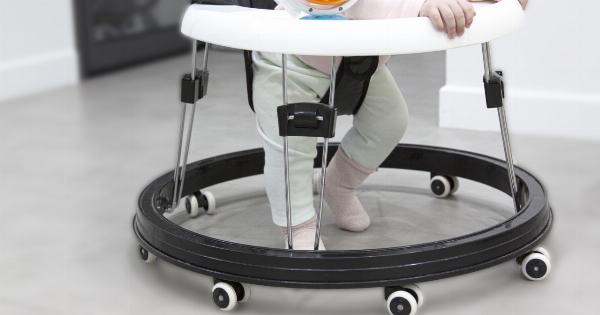In today’s digital age, it’s hard to avoid technology. Smartphones and tablets are now a common sight in households, with children growing up with screens all around them.
As much as technology offers convenience and entertainment, it also poses several risks, especially when used by babies or toddlers. In this article, we explore reasons why it’s not safe for babies to play with tablets.
1. Screen Time Limits
American Academy of Pediatrics (AAP) suggests that children aged 6 years and above should have limited screen time. For babies and toddlers, screens should be avoided altogether.
This is because exposure to screens can alter the development of the brain and cause issues such as language delay, ADHD, and problems with social skills. Babies need real-world experiences to learn and develop their skills; they cannot learn all they need from an electronic device.
2. Eye Strain and Vision Damage
Tablets emit blue light, a type of light that’s damaging to human eyes, especially the delicate eyes of babies. Long exposure to screens can cause eye strain, dry eyes, headaches, blurred vision, and myopia (near-sightedness).
Babies and toddlers are still developing their eyes and are more vulnerable to the effects of blue light. Eye strain caused by screens may interfere with their eye development and lead to vision issues later in life.
3. Lack of Physical Activity
Screen time is sedentary, and babies need physical activity to develop and grow.
While it’s essential to be mindful of the types of activities babies engage in, playing with tablets denies them the chance to crawl, walk, climb, run, jump or explore their surroundings. Physical activity is crucial for developing their motor skills and releasing pent-up energy.
4. Exposure to Inappropriate Content
The internet is full of content, both good and bad. Baby-friendly apps and games are easy to get mixed up with videos, ads, and other inappropriate content.
The risk of exposure to violence, nudity, profanity, and other mature themes is a real concern when babies play with tablets unsupervised. The younger the child, the harder it is for them to distinguish reality from fiction, and this could lead to psychological issues.
5. Tech Addiction
Exposure to screens at a young age can create dependency and lead to addiction in later years. It’s not uncommon to find babies throwing tantrums when their parents take away their tablets, phones, or TVs.
This addiction can also cause sleep disruption, making it difficult for babies to get adequate sleep, leading to crankiness and other sleep-related issues.
6. Radiation Risk
The radiation emitted by tablets may not be dangerous in small doses, but babies are still developing, and prolonged exposure may increase their risk of developing cancer later in life.
While the level of radiation is generally low, it’s still best to limit exposure to babies as much as possible.
7. Hinders Social Interaction
Babies need social interaction to develop their language and communication skills. When babies spend too much time playing with tablets, phones, or watching TV, they miss out on opportunities to interact with real people.
This can lead to stunted communication skills and difficulty bonding with peers later in life.
8. Sleep Disturbance
Screen time before bed can interfere with sleep patterns, especially in babies. The artificial blue light emitted by screens interferes with the production of melatonin, a hormone that promotes sleep.
This can lead to restlessness, difficulty sleeping, nightmares, and frequent awakenings. Sleep disturbance in babies can lead to irritability, mood swings, and cognitive issues.
9. Tablets Pose Choking Hazards
Most tablets come with small detachable parts that are easy to swallow. Babies are known to put everything in their mouths, and the small parts on tablets pose a choking hazard.
This is especially true for babies under the age of one, who are still exploring their world through sensory input.
10. Technology is No Substitute for Parental Interaction
Babies need emotional and social interaction to develop security and attachment. Technology is not a substitute for parental care, and leaving babies to play with tablets unsupervised denies them the human connection they need to grow and thrive.
Interacting with your baby through reading, hugging, playing, and talking helps them develop a sense of trust and attachment.
Conclusion
While tablets offer convenience and entertainment for adults and older children, it’s not safe for babies to play with them.
There are several risks associated with screens, including the development of the brain, eye strain, radiation exposure, sleep disturbance, social interaction, and physical activity. Parents should limit their baby’s exposure to screens and provide them with real-world experiences to promote their development.































